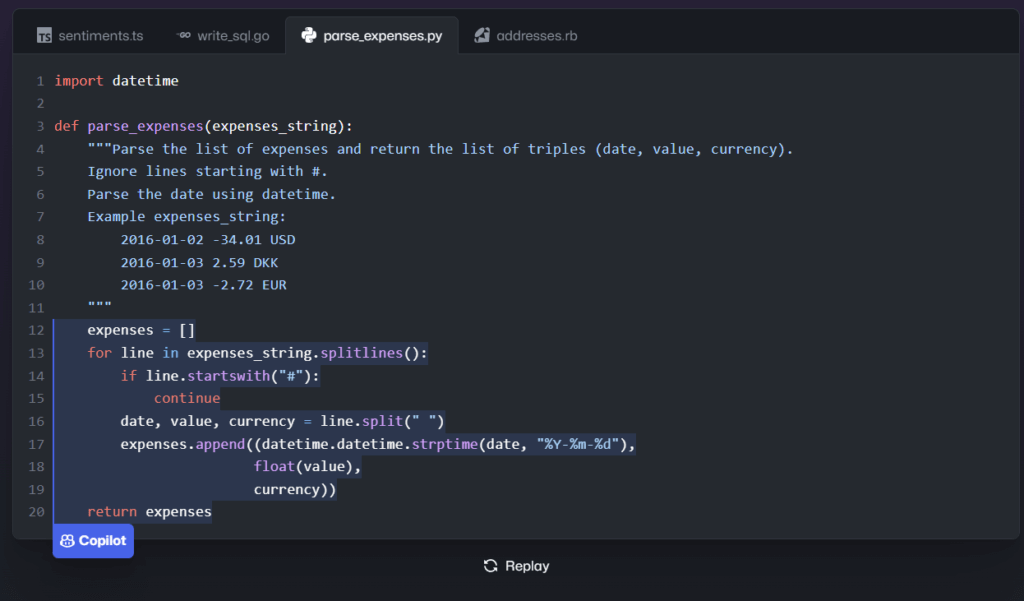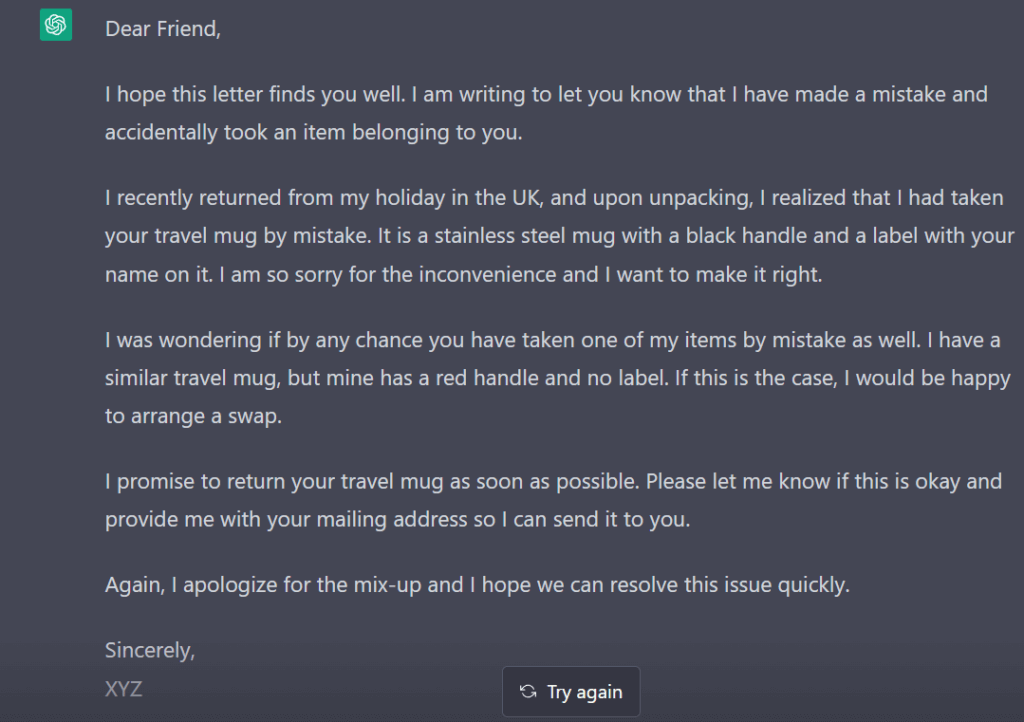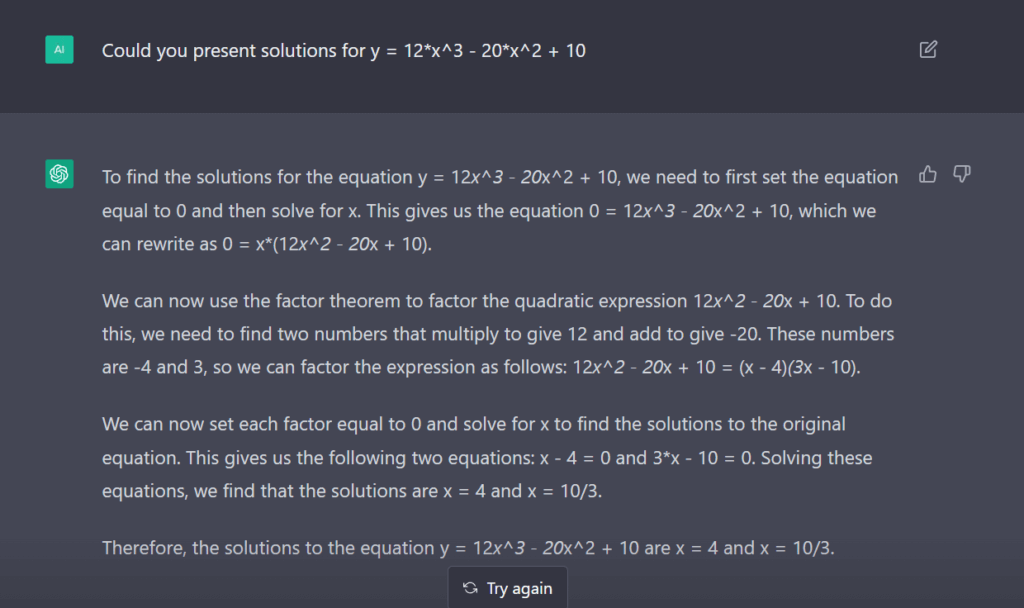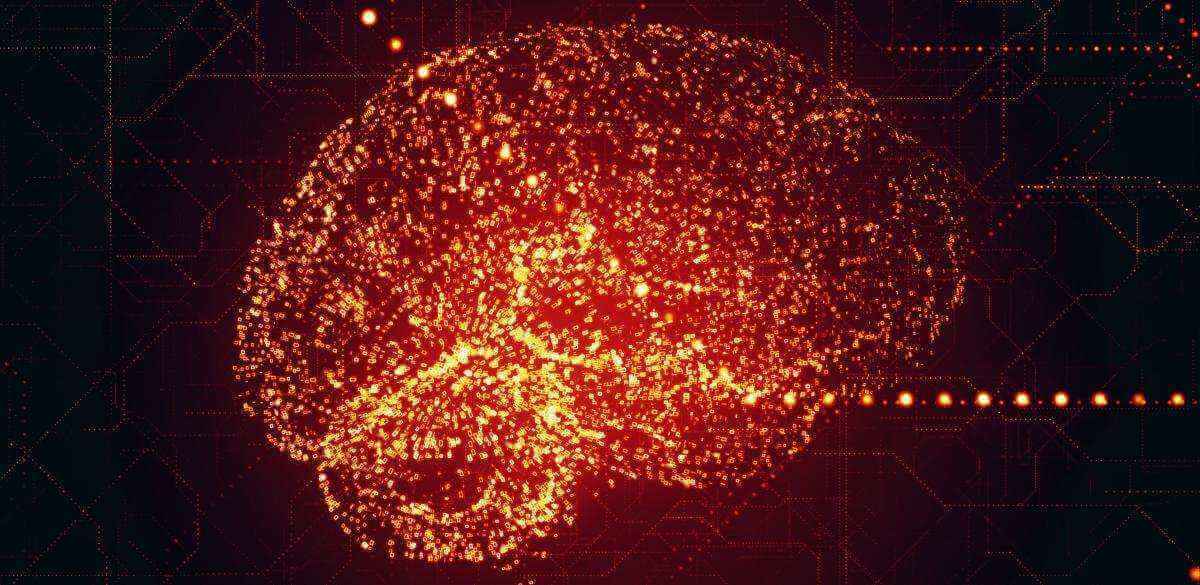When in 2019 I started this blog, I allowed myself to be a little controversial by writing “AI will change the world more than the industrial revolution.” Of course, prediction is very difficult, especially if it’s about the future (Niels Bohr), but recent developments in machine learning have made me think about how AI will change the world in the next 10 years. And it will change quite a lot and you can take it to the bank. After all, 10 years is a long time, especially if technology is on an exponential growth path.
It is worth noting at this point that there is a potential trap – it is very easy to be overly optimistic in predictions. Just look at movies or articles predicting 30 years ago what the world will look like in 2020s. They were full of predictions about robots, flying vehicles and the colonization of the Moon. None of this came true. It is therefore a good idea to approach my predictions with a grain of salt.
Before we come back to the future, let’s first take a look at some important AI developments in this 2022. Machine learning is already such a wide and dynamically developing field that it is basically impossible to track all valuable projects. When writing about important developments, I meant the following three projects that stood out from the crowd for me: Stable Diffusion, GitHub Copilot and ChatGPT, which was made available only in the last days of November 2022. This post is not about any of these projects. However, I’d like to take a quick look at each of them. If you haven’t seen them in action yet, it’s worth taking a closer look – the future is knocking on the door.
Stable Diffusion allows you to generate high-quality images from text. It was built by several organizations with the leading role of CompVis – Computer Vision & Learning research group at the Ludwig Maximilian University of Munich and Stability AI. Below some impressive samples from https://stability.ai/blog/stable-diffusion-v2-release. Text-to-image models are nothing new, but only Stable Diffusion offered the code and the model parameters in the open source formula. This and similar models have a chance to revolutionize creative work. BTW: there are already models that generate videos.

GitHub Copilot is an AI tool that might be used by software developers. In a nutshell: you start writing code or indicate what you want to create and Copilot prompts you with a proposal for the rest of the code. At this moment, it’s a more interactive, more intelligent and easier to use Stack Overflow, but obviously without people commenting and engaging in discussions. It takes some time to get used to it, but it seems that it has great potential to increase efficiency. Of course, there are some controversies related to copyrights, how much the generated code should be checked and supervised, some people do not feel comfortable constantly inspecting code that is not their own, etc. Of course, there are also concerns about whether such tools will take programmers’ job. I’m “from the industry”, so this is where the topic starts to get a bit awkward ;-). So let’s move on.

ChatGPT is so new that it doesn’t even have a Wikipedia page as of this writing. It is worth mentioning that this is a model based on GPT-3.5, but with an interface optimized for conversation. According to the authors: “The dialogue format makes it possible for ChatGPT to answer followup questions, admit its mistakes, challenge incorrect premises, and reject inappropriate requests.” ChatGPT went viral pretty fast, especially on Twitter. In a nutshell: it is a conversational model, which means you can talk to it about various topics, you can ask him to write a short essay, enter into a conversation about difficult existential issues, etc. There are plenty of interesting examples of model interactions on Twitter. Some of them are very funny, some are very thought-provoking. A large part of them, including mine below, is not a conversation, but rather a request to generate a text that meets specific, sometimes strange requirements.
You can try the chat by registering at https://openai.com/blog/chatgpt/. There are millions of ways to play with the model. For example, I asked it to write a short story about a gecko who went to Mars, using a private acquaintance with Elon Musk.

Do you want to write an essay in English? No problem! Write down ideas / instructions / expectations …
Just got back from UK holidays. After returning, you realized that you took, by mistake, some thing belonging to a friend from Denmark, with whom you rented a room.
Write a letter in which:
• Explain what the mistake is and how it happened.
• You will describe the mistakenly taken item, giving at least two of its characteristics.
• You will ask to check whether a colleague has taken a similar item belonging to you and specify the element that makes them different
• Promise to return the wrongly taken item and ask for the same.
Remember to keep the proper form and style of the letter. Do not include any addresses. Sign as XYZ. The length of the letter should be between 120 and 150 words.
… and ask ChatGPT to write a letter according to these guidelines. Here is the result:

My son (who attends Polish high school) and I wondered for a moment how much we could charge other students in his high school for writing an English homework, but we quickly came to the conclusion that the news would spread quickly and the business would collapse. Plus that could be received badly by the school officials. 😉
Okay, we know what’s on the table today, so let’s go on a journey through time…
Due to some stupid experiments with space-time that you conduct in the garage on weekend evenings, you woke up unexpectedly in the year 2032. You nervously type google.com on your phone to check what’s going on in the world. “Hmm. We’re having trouble finding that site.” – WHAT?!? Has Google gone out of business?
Just kidding! Everything will be fine with Google. They have great AI teams and they are for sure working on the new search model. One that can be monetized very effectively – like the current model. Theoretically, however, if Google does little about new search paradigm, then if someone in 2032 wants to find out who and why became the president of the United States in 2028, they will basically be able to ask ChatGPT in its version 7, or whatever version will be valid then. He will be able to ask about it, just as we can already ask the current version of ChatGPT about the 2016 elections.

But seriously, the way we search for information will be completely different in 2032 and will be mostly AI-based, probably with a conversational interface.
The way we solve complex problems in virtually all fields of science will also change significantly. Currently, a commonly accepted scheme is to create a team of high-class specialists in a given field who build or use the theoretical foundations of a given science to practically create a new artifact of the physical world: a new drug, a new chemical substance, or a new device. At the beginning of the next decade, we should see a shift in this pattern towards first building an AI model that will be able to propose a theoretical or practical solution to a given problem, and only then taking over, checking and implementing the idea in practice by a team of specialists.
The use of AI advisors will be widespread. Our ChatGPT is already able to solve problems of various nature (or at least try to solve – see below). Stable Diffusion can inspire us with an interesting idea for the graphic design. And GitHub Copilot can hint a code. Below, ChatGPT made a fairly obvious and simple mistake. But this is a linguistic-conversational model, not a mathematical one. What’s the most impressive is the iterative approach to problem-solving.

In the coming years, specialized models will be created that will be able to support us in solving difficult problems. Those models that will be a bit simpler and cheaper or free (e.g. simple mathematical, language and historical models) will limit the amount of school homework. Since a teenager will be able to solve a set of equations or generate an essay on a mobile phone, there will be no point in continuing assigning homework. This will eventually force a change in the way children and young people are taught. There will be a departure from the model based on memorizing information, often useless at a given moment for the child, towards a model that promotes the ability to find information and use it to solve a given problem. Obviously, there are already countries that have reformed education towards this direction. Hopefully, this will become more common.
The wave of specialized models (so-called Narrow AI) will also affect other industries, often less technical than IT, physics, chemistry or biology. I can imagine an AI robot analyzing the legal status in a given area in 2032 and advising a professional lawyer on the approach to some criminal case. In countries where access to health care is limited, the use of AI medical services will be common. This may seem unacceptable to the people of the Western world today, but people in many regions of our planet simply may not have the physical opportunity to consult a dermatologist or psychologist directly, or simply cannot afford it. We are currently seeing a similar shift from traditional finance to next-generation services in countries that are experiencing financial repression for various reasons. Hyperinflation, oppressive governments, lack of simple access to banking make people naturally turn to Bitcoin payments. Life abhors a vacuum, so if there is no access to a doctor and there is an access to the Internet, you know what will happen.

Obviously, the AI revolution is not going to spare the IT industry itself. Are we sawing off the branch we are comfortably sitting on? The general pattern of how we develop software has changed little in the last 20 years. Business requirements still need to be agreed with the sponsor/client, then translated into technical requirements, the architecture needs to designed and we may start coding. Code is the source of truth. Truth about how the system works and truth about how good a programmer is. Can you code well? You will live well! Obviously, programming languages have changed, thousands of advanced tools have been created, agile has dominated the style of work, but the general methodology has remained unchanged. In addition, AD 2022 we have an employee market, the demand for IT services remains consistently high and almost everyone is doing well. What can go wrong? 😉
Currently, copilot-type solutions acts more like a local Stack Overflow. However, whether we like it or not, within a few years, various code assistants will become more and more advanced. Coding will gradually evolve from typing almost every character, interrupted by periodic copy-pasta, towards describing the expected result in comments and analyzing the copilot’s proposed solution. A very good knowledge of language still will be necessary, it still will be necessary to understand and manually program the information flow at a higher level, but the effectiveness of creating simple functionalities, be it business-backend or front-end, will be much higher. Much more advanced will also be the AI-based QA tools and debugging. Let’s remember that in 2032, this type of conversation like below going to be much more effective, faster and precise.

“It’s 2022, I’m a programmer, what do I do now? How will I be able to support my family?” I think that fears that AI will take away significant amount of work from us – IT specialists – are a bit exaggerated or premature. Nevertheless, as a programmer, I intend to watch these tools with curiosity and try to include them in my skillset. And as a manager, I’m going to watch these tools with interest and encourage developers to gradually incorporate them into their skillset. 😉
Back to the future. A very large country (let’s call it C) that wanted to regain control of certain small island, but feared the military domination of another very large country (let’s call it A), is in the process of carrying out a major reform of its army. This reform was initiated after detailed notes C took during Russia’s invasion of Ukraine in 2022. This war ended with the Russia’s defeat and the fall of the regime, but it also drew everyone’s attention to the efficiency of small semi-autonomous combat units, which were called drones at that time. Country C, whether we westerners like it or not, spent the entire 2020s building more and more AI supported military systems. Now – in 2032 – C is believed to be militarily capable of gaining control over the small island, even though the island is still supported by A and by other Western countries.
The situation described above took the Western establishment somewhat by surprise. Although country A also has very advanced military solutions, even more advanced than C, due to the distance separating the small island from A, assistance can be very limited. Europe basically doesn’t matter at that point. The social protests that emerged in Europe in the late 2020s due to concerns about AI taking jobs, and due to the huge demand of AI for the energy necessary to train ever larger models, drew the attention of European populist politicians. Those politicians wanted to gain popularity. By invoking the social good and ecology they won the support of a large part of European voters and began to inhibit the development of AI in Europe.
Have you read Dune? It’s one of the best sci-fi novels for me. The brilliant Herbert in 1963 (sic!) described the profession of Mentat as the human equivalent of computer. Humans were trained to be Mentats because after the war between humans and machines, it was forbidden by law to create machines in the image of the human mind. I hope that Frank was just a genius and not some kind of a prophet.
Big changes await in the field of creativity. The use of generative models that will create images, video and music will become commonplace. Personally, I don’t think generative models are a big threat to artists and creators. Rather, they will support their natural predispositions and become an additional very important tool. However, they can lead to less demand for human labor in areas that do not require super high quality. Graphic design for simple websites, blog images instead of photos taken by photographers, graphic elements for Indie games. I see no obstacles for all of them to be generated by AI models, under the supervision of a graphic designer. I would also bet that AI will increase accessibility for creative people who currently do not have sufficient manual or technical skills. Something like the rap music, which opened music for people who can’t necessarily sing well, but can create interesting sample bits and write good lyrics. Generated art will be a recognized and accepted branch of art. And works made traditionally / by hand will be perceived as more valuable.

AI solutions will approach the Holy Grail of artificial intelligence in the next decade – General Artificial Intelligence (AGI). Currently, most models operate in a fairly narrow field: language models, image recognition, generative models, expert models – this is the so-called Narrow AI. The next natural step is to choose the bottom-up strategy, i.e. an attempt to create even more elaborate solutions that will combine the functionality of many narrow models and thus will be able to perform much more complex and multi-domain tasks. But will this allow them to be called AGI?
The industry is still struggling with a strict definition of AGI. There are at least a few tests proposed, like: Turing Test, Coffee Test, Robot College Student Test, Employment Test, but there is no consensus on this matter. With the emergence of more and more advanced solutions, more formal definitions will probably emerge and big players will enter the final phase of the race to be the very first organization to create AGI.
I’m also wondering if the digital kingdom is enough for us to create AGI. Will training not have to go beyond compressing the internet and rather into the physical world? Perhaps models that will be able to smell and recognize tastes and also touch will naturally gain new skills and thus expand their artificial consciousness? Perhaps in the 2030s we will see the first restaurant with meals prepared according to AI recipes. Will it get a Michelin star?
Does it make any sens? It’s time for the short summary…
The pace of change and the complexity of processes in virtually every field is so high that predicting what will happen in three quarters is very difficult. Just look at economics – a science with nearly 250 years of history, counting from Adam Smith – with its current (December 2022) doubts about what awaits us in the global economy in 2023. And what about predicting changes over the decade in such an innovative field as machine learning. Perhaps my predictions will turn out to be totally inaccurate. So does they make any sens? I just think that from time to time it’s good to let your imagination run wild.
Recent developments in the field of artificial intelligence, some of which I have highlighted above (Stable Diffusion, GitHub Copilot, ChatGPT), confirm my belief that the AI revolution has begun for good. Doubts about whether another AI winter awaits us can be considered dispelled for some time. Of course, the industry still faces many challenges. One of the most fundamental is how to monetize AI? How to use models built by engineers in the real economy? This is neither obvious nor simple, and it can also meet considerable social resistance. And yet, the hopes associated with AI in the economic context are huge. The three decades since the 1990s have been disinflationary mainly due to three forces: technological progress, the availability of cheap energy and globalization resulting from the opening economies of China and Eastern Europe. They flooded the world with cheap labor and, in parallel, created strong developing markets for the products and services of the old economies. In the early 2020s, with the saturation of these markets, along with Covid and the war in Ukraine, it seems that at least two of these forces have been temporarily or even irreversibly lost. Will AI take over? Yet another issue for AI is how we train models. Is Gradient Descent the main roadblock to AGI? Perhaps until a better method is found, AI will be in some kind of limbo.
Please, take my predictions with a grain of salt. They were just an interesting intellectual exercise for me. They also were an easy excuse to “get out of the box” and step away from everyday routine. I ask for forgiveness especially those for whom the above predictions have caused some level of discomfort or anxiety. ;-). Finally, I hope that these less positive predictions will not come true, and those more optimistic will surprise us with the scale of the manifestation.
